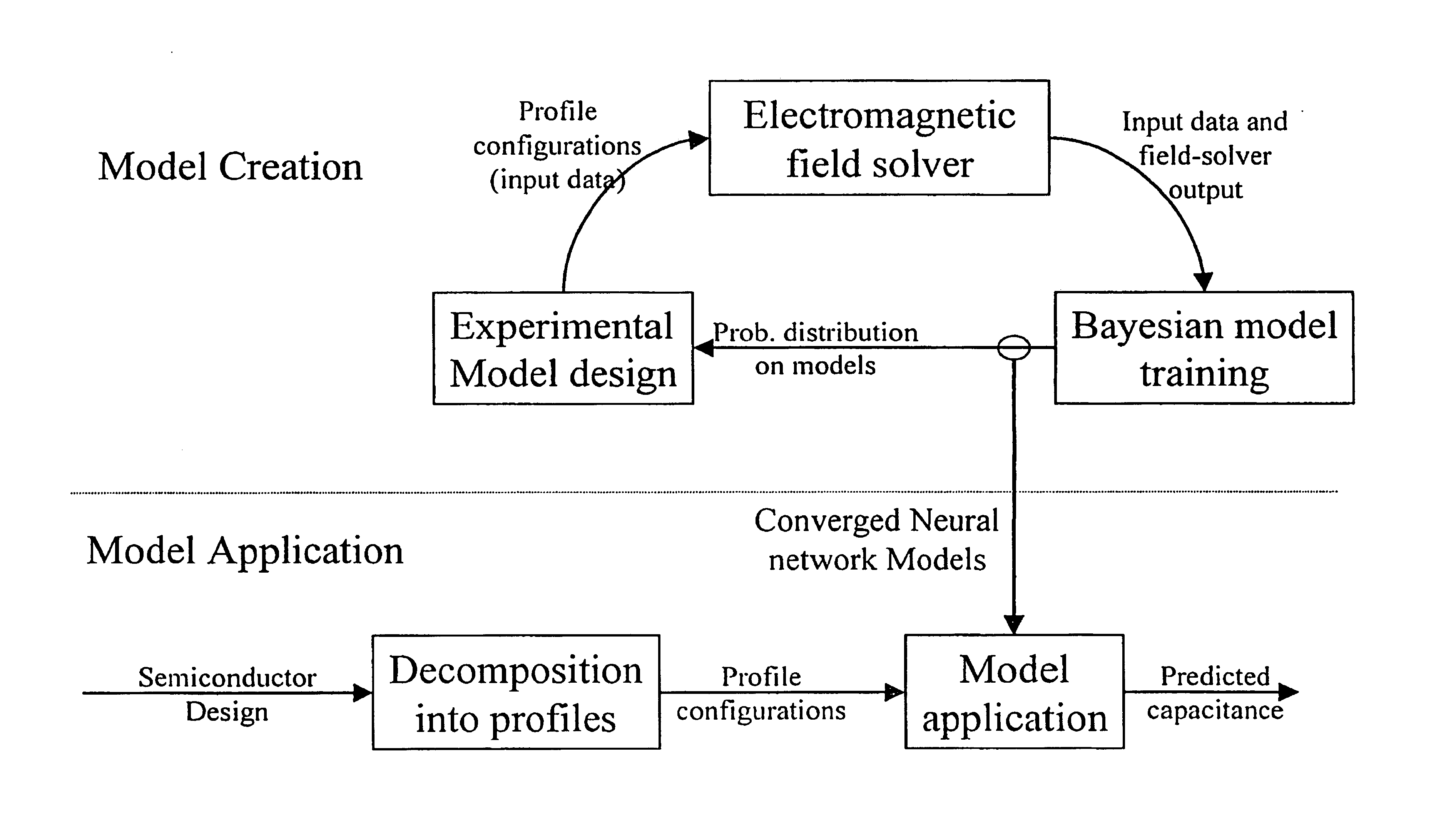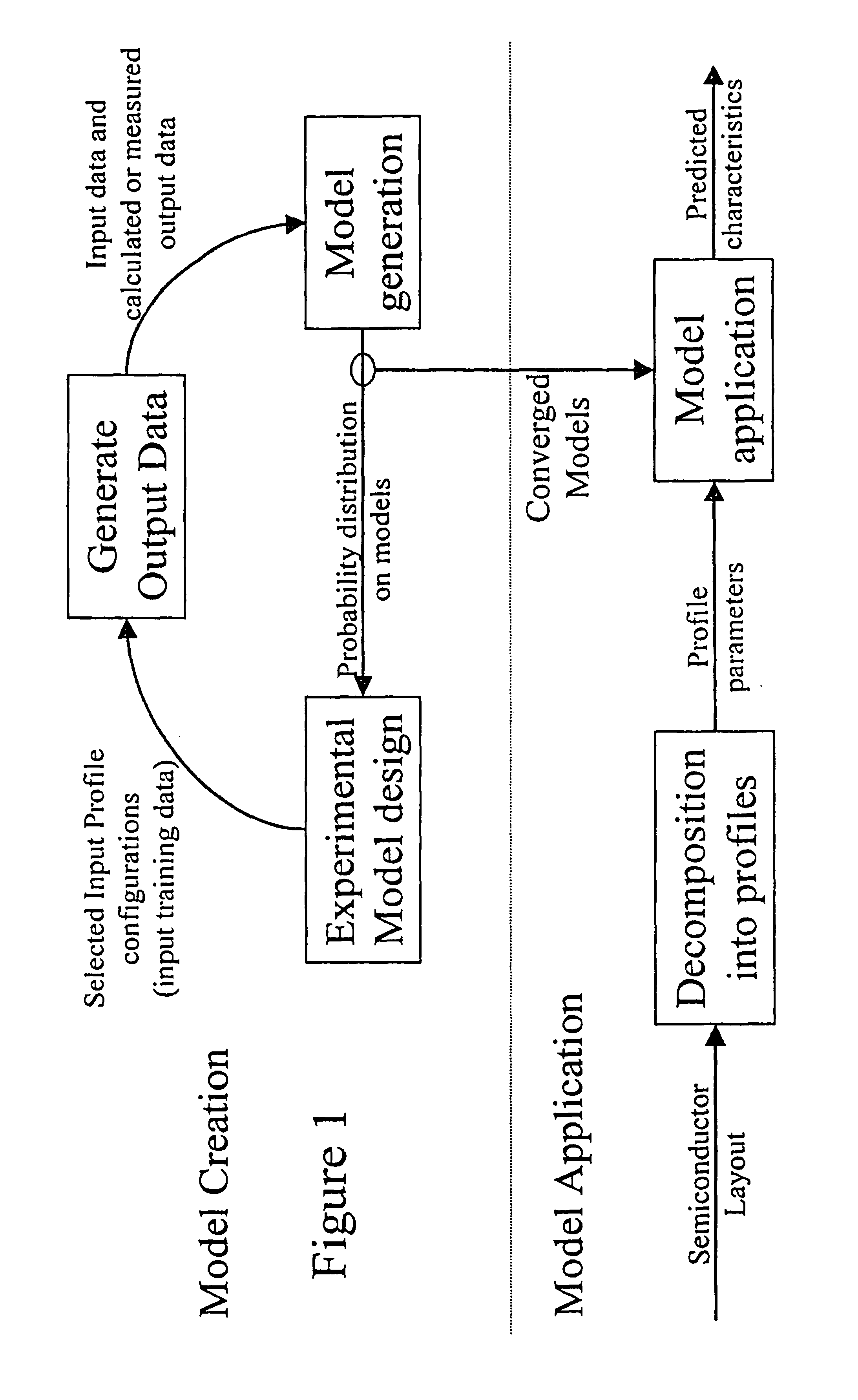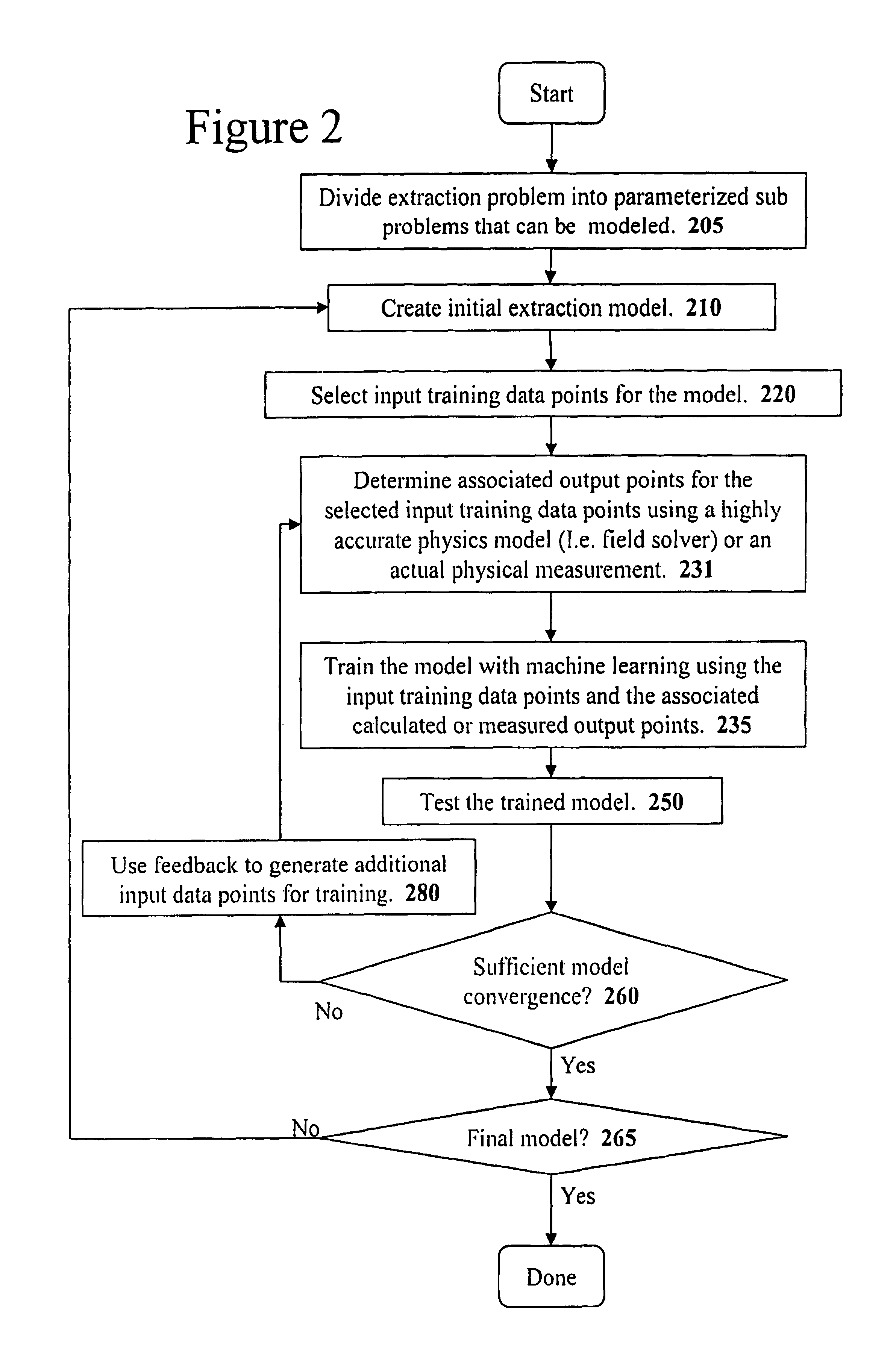Method and apparatus for performing extraction using a model trained with Bayesian inference via a Monte Carlo method
a model and model technology, applied in the field of semiconductor design testing, semiconductor manufacturing, semiconductors, etc., can solve the problem of decomposing complex extraction problems into smaller, simpler extraction problems, and achieve the effect of high accuracy
- Summary
- Abstract
- Description
- Claims
- Application Information
AI Technical Summary
Benefits of technology
Problems solved by technology
Method used
Image
Examples
Embodiment Construction
[0051]Methods for extracting electrical characteristics from integrated circuit layouts using probabilistic models are disclosed. In the following description, for purposes of explanation, specific nomenclature is set forth to provide a thorough understanding of the present invention. However, it will be apparent to one skilled in the art that these specific details are not required in order to practice the present invention. For example, the present invention has primarily been described with reference to Bayesian Networks. However, the same techniques can easily be applied to other types of function model creation systems.
Electrical Characteristic Extraction
[0052]Various different methods are used to extract electrical characteristics from an integrated circuit layout. The various different methods have their own advantages and disadvantages.
Field Solvers
[0053]To extract a set of highly accurate electrical characteristic form an integrated circuit layout, an EDA extraction applica...
PUM
 Login to View More
Login to View More Abstract
Description
Claims
Application Information
 Login to View More
Login to View More - R&D
- Intellectual Property
- Life Sciences
- Materials
- Tech Scout
- Unparalleled Data Quality
- Higher Quality Content
- 60% Fewer Hallucinations
Browse by: Latest US Patents, China's latest patents, Technical Efficacy Thesaurus, Application Domain, Technology Topic, Popular Technical Reports.
© 2025 PatSnap. All rights reserved.Legal|Privacy policy|Modern Slavery Act Transparency Statement|Sitemap|About US| Contact US: help@patsnap.com



